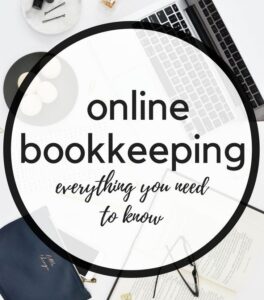Do you think about working online only with your company? Here are some things to think about when you consider becoming a virtual bookkeeper.
According to the U.S. Bureau of Labor Statistics, the number of auditors and accountants will increase by 7% between 2020 and 2030. This is the average for all occupations. However, accounting is a very stable career. AccountingWEB reports that unemployment rates in recessions for accountants are usually lower than for other workers.
You have the flexibility to work from home and choose who and where you work. Here are the facts to help you decide if this is the right decision.
What is a Virtual Bookkeeper?
Accountants who work virtually don’t have offices; they work from home. They use cloud accounting software as well as mobile apps to provide a variety of accounting services for small businesses and self-employed people, including:
- Bookkeeping services
- Services for bill pay
- Accounts payable and accounts receivable
- Preparing financial statements and financial reports
- Services for tax filing
- Virtual CFO services
- Cash flow forecast
- Business Process Advice
- Payroll services
What qualifications do virtual bookkeepers need to have?
The qualifications you need to be a virtual bookkeeper will depend on the services you provide. You don’t need a college degree or professional qualifications if you plan to offer basic bookkeeping services; relevant experience and familiarity with accounting and online bookkeeping principles will suffice.
However, to be able to offer higher-level services such as representing clients in an audit by the IRS, another tax authority, or auditing financial statements or outsourced CFO services you will need a college education and a designation.

How do virtual bookkeepers work with clients?
Although virtual accountants frequently work from home, they can access the internet from any location using a laptop or mobile device.
Using messaging services like Slack and Microsoft Teams, virtual bookkeepers can speak with accountants by phone, email, or video conference.
Together, they administer cloud-based software services for bookkeeping, tax preparation, and other tasks.
The benefits of starting a virtual accounting firm
There are numerous advantages to virtual accounting, even though it is not for everyone.
LOW OVERHEAD FEES
Renting, furnishing, and upkeep of office space is expensive. You can work remotely as a virtual accountant to cut down on costs. Although you may need to spend more on security and technology than a traditional brick-and-mortar location, it is usually cheaper to give up office space and the monthly costs that go with it.
NO COMMUTE
Depending on where you reside, it can take up to an hour. You can work remotely as a virtual accountant from anywhere you like, including your hotel room, coworking space, or coffee shop. You can work from wherever you are so that you don’t have to commute to the office or drive to the client’s offices.
Low Start-up Costs
Start-up costs for virtual accounting firms are lower than those of local accountants. Starter Story estimates that the average startup price for an accounting firm is $19 815.
Step by Step Business states that the average costs for online accounting firms are:
- Establishing a business name, and incorporating: $175
- Permits and licenses for businesses: $200
- Insurance: $200
- Hosting, Domain name registration, and website setup: $2,000
- Marketing initial: $750
- Software and hardware for computers: $1,750
Virtual bookkeeping costs are only a fraction of what it costs to open a brick-and-mortar business.
BASE FOR LARGER CLIENTS
Prior to cloud-based accounting software, accountants could only work with owners of small businesses within their local area. Although it was possible to work with small businesses located in other areas, this meant that files had to be sent back and forth via courier or mail. This time-consuming process could lead to client data being stolen.
Virtual accountants can work anywhere with companies. All you need is an internet connection and the right software to securely and quickly serve small and medium-sized businesses worldwide.

How to overcome the challenges of becoming a virtual accountant
Although virtual businesses are more common than ever, there are still challenges. You might have to work in different time zones with small business owners, so you may get emails in the morning and late at night.
It can be difficult to work remotely because your office is always there. If you are used to working with coworkers, it can be lonely going out on your business trip.
These challenges are overcome by many virtual accountants. It’s important to connect with other peers, such as the FreshBooks Accountant Partner Program. It will be easy to start and grow your virtual accounting business if you have the benefit of advice from experienced virtual accountants.
